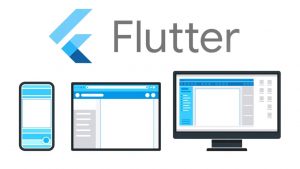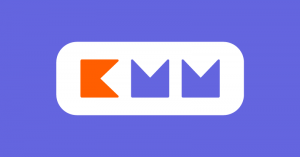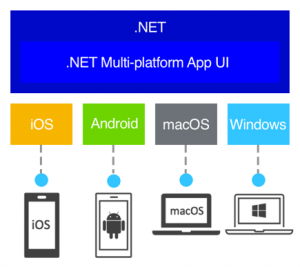Today, hybrid app development has become an increasingly popular option for businesses looking to create mobile applications. Hybrid app framework first choice for startups and companies who want a presence in both the Google Play Store and the Apple App Store.
What’s Hybrid App Framework?
Hybrid app framework that allows developers to create multi-platform apps using a single code base. It uses technologies like HTML, CSS, JavaScript, and native APIs provided by mobile operating systems to create applications that can run on multiple platforms.
Advantage Of Hybrid framework
Development Cost:
Hybrid app development can be more cost-effective than building separate native apps, as a single codebase can be used for multiple platforms, reducing the need for multiple development teams.
Easy access to native device features:
Hybrid apps can access native device features, such as the camera, GPS, or accelerometer, using a bridge provided by the hybrid framework. This allows developers to create apps with native-like functionality without having to write platform-specific code.
Easier maintenance:
Rather than updating a separate code base for each platform developers only need to maintain and update only one set of the code base.
Faster time-to-market:
Hybrid app frameworks offer a faster development process compared to building native apps. It may cut down development time and efforts by 60 to 70%. As developers only need to write code once, rather than building separate codebases for each platform.
Wider audience reach:
Hybrid apps can be deployed across multiple platforms, allowing businesses to reach a wider audience and maximize their app’s potential user base.
Disadvantage Of Hybrid framework
Complexity:
Hybrid app development can be complex and require specialized skills and tools, especially when it comes to integrating with native features and optimizing performance.
Performance Issue:
Hybrid apps may not perform well as compared to native apps.
Limited access to native APIs:
While hybrid apps can access some native APIs, they may not have access to all the features that are available in native apps, which can limit functionality.
Limited user experience:
Hybrid apps may not offer the same level of user experience as native apps, especially for apps that require advanced graphics, animations, or multimedia.
Dependence on third-party frameworks:
Businesses may be dependent on third-party hybrid app frameworks, which can limit their control over the development process and make them vulnerable to security and reliability issues.
Here are the top 4 hybrid frameworks that dominate the cross mobile app development market.
- Flutter
- React Native
- KMM (Kotlin Multiplatform Mobile)
- .NET MAUI (Multi-platform App UI)
- Flutter
Flutter is a hybrid app development framework built by Google. It’s open source and gained popularity in recent years as a powerful hybrid framework for building high-performance, beautiful, and native-like mobile applications for both Android and iOS platforms.

Flutter allows developers to build apps for multiple platforms with a single codebase, using Google’s Dart programming language. It was first introduced in 2017 and has since gained popularity due to its high performance, rich set of widgets, and fast development cycle.
Here are some features of Flutter.
Customizable Widgets
Flutter has a wide range of customizable widgets that can be used to build unique and beautiful user interfaces for mobile apps.
Fuchsia OS Support:
Developers can also build applications for the Fuchsia platform.
Hot Reload:
Flutter allows developers to make changes to the code and see the results instantly using its hot reload feature. This can save time and speed up the development process.
Built-in Testing and Debugging:
Flutter provides built-in testing and debugging tools, which can help developers catch and fix bugs quickly and easily.
Multiplatform Support:
Flutter is not only limited to mobile apps you can also make desktop and web-based applications.
- React Native
React Native is an open-source framework developed by Facebook and is used to build mobile apps for both iOS and Android platforms.
![]()
It allows developers to build apps for both iOS and Android platforms with a single codebase. The framework uses the same design principles as React, a popular JavaScript library used for building web applications. React Native offers a set of pre-built components that can be used to build mobile apps for both iOS and Android platforms.
Here are some features of React Native.
Pre-built Components:
React Native offers a set of pre-built components that can be used to build mobile apps. This can help developers to build apps quickly and efficiently.
JSX Syntax:
React Native uses a syntax called JSX, which allows developers to write code that looks similar to HTML. This can make it easier for web developers to get started with mobile app development.
Third-Party Libraries:
React Native supports a wide range of third-party libraries, which can be used to add additional features and functionality to mobile apps.
Large Community:
React Native has a large and active community of developers. This means that developers have access to a wide range of resources, tutorials, and plugins to help them build better apps.
3.KMM (Kotlin Multiplatform Mobile)
Kotlin Multiplatform Mobile is an SDK for iOS and Android app development. It offers all the combined benefits of creating cross-platform and native apps.

It is an open-source framework developed by JetBrains, the company behind the Kotlin programming language. KMM allows developers to share common code across both Android and iOS platforms. The framework provides access to a set of platform-specific libraries, which allows developers to use the native features of each platform. KMM uses a common programming language, Kotlin, for both Android and iOS development. This means that developers can use the same language, IDE, and build systems for both platforms.
Here are some features of KMM.
Code Sharing:
KMM allows developers to use a single codebase to build mobile apps for both Android and iOS platforms. This can save development time and reduce costs for businesses.
Native Performance:
KMM allows developers to use native components of each platform, which means that apps built with KMM have native-like performance.
Common Language:
KMM uses Kotlin, a modern and powerful programming language that is easy to learn and use. This can make it easier for developers to write code for both Android and iOS platforms.
Access to Platform-Specific Libraries:
KMM provides access to a set of platform-specific libraries, which allows developers to use the native features of each platform.
IDE Support:
KMM is fully supported in Android Studio, the official IDE for Android development. This means that developers can use the same IDE for both Android and iOS development.
Reduced Development Time:
KMM can help businesses save money as it requires less development time and can be used to build apps for multiple platforms with a single codebase.
- .NET MAUI (Multi-platform App UI)
.NET Multi-platform App UI (.NET MAUI) is a cross-platform framework for creating native mobile and desktop apps with C# and XAML.

It is the evolution of Xamarin Forms, a previous hybrid app development framework also developed by Microsoft. It is an open-source framework that allows developers to create mobile apps for multiple platforms using a single codebase. It uses the .NET runtime and C# programming language, which are both widely used by developers for building high-performance, scalable applications.
.NET MAUI provides a set of common UI elements that work across all platforms, as well as platform-specific APIs and libraries that allow developers to access native functionality on each platform.
Here are some features of .NET MAUI.
Visual Studio Support:
.NET MAUI is fully supported in Visual Studio, the official IDE for .NET development. This means that developers can use the same IDE for multiple platform development.
Native Performance:
.NET MAUI allows developers to use native components of each platform, which means that apps built with .NET MAUI have native-like performance.
Access to Platform-Specific Libraries:
.NET MAUI provides access to a set of platform-specific libraries, which allows developers to use native features of each platform.
Common Language:
.NET MAUI uses C#, a modern and powerful programming language that is easy to learn and use. This can make it easier for developers to write code for multiple platforms.
Conclusion
Flutter is a great choice for developers who want to build visually appealing, high-performance mobile apps with a fast development cycle.
React Native is an excellent choice for developers who want to create cross-platform mobile apps with a focus on performance and native-like user experiences.
Kotlin Multiplatform Mobile (KMM) is a good choice for developers who want to write apps for both Android and iOS platforms using a single codebase. It uses Kotlin as its programming language, which is becoming increasingly popular among developers and provides native performance for both platforms.
.NET MAUI is a powerful hybrid mobile app development framework that offers a range of benefits for developers and businesses, including code sharing, native performance, and access to platform-specific libraries. Its use of the C# programming language and Visual Studio support make it a great choice for developers familiar with the .NET ecosystem.
Choosing a framework depends on several factors including development time, cost, performance, and user experience. Each framework has its own strengths and weaknesses, and the best choice will depend on the specific needs and goals of your project.






Add comment